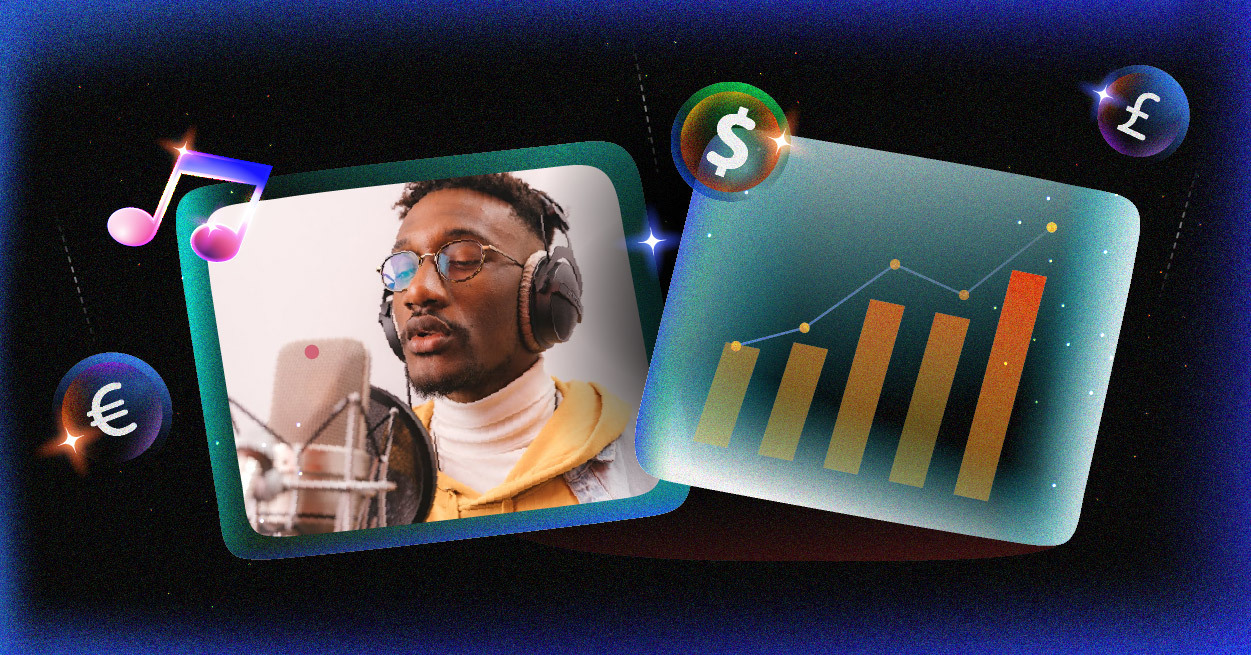Video streaming has changed how we watch and enjoy entertainment today. It lets users watch their favorite content anytime and anywhere. The rise of streaming platforms has created new ways to deliver video content to viewers. Video on Demand (VOD) is a media distribution model that offers flexibility in content consumption. It comes in three main types: SVOD (subscription-based), AVOD (advertising-based), and TVOD (transactional).
TVOD, or Transactional Video on Demand, lets viewers pay per view (PPV) basis for specific content. Users pay a one-time fee to watch or own individual movies or shows.
This blog will explain everything you need to know about TVOD streaming services. We will cover its benefits, business model, and how it differs from other streaming types. Let’s explore the TVOD model in-depth.
What is TVOD?
The acronym TVOD stands for Transactional Video on Demand. TVOD refers to a service where consumers pay for each content they want to watch in the streaming industry. That’s why this model is also known as pay-per-view (PPV).
This model works like a digital rental or purchase system for movies and shows. You can either rent content for a limited time or buy it for permanent access. Platforms like Apple TV and Amazon Prime Video offer TVOD options alongside their subscription services.
TVOD content includes new movie releases, exclusive shows, and live sports streaming events. The pricing varies based on content type, with newer releases having a premium price. This model gives viewers more control over their spending since they only pay for what they want to watch.
How Does the TVOD Model Work?
The TVOD model lets users pay for specific content they want to watch. Here’s a detailed breakdown of how this system operates:
Rental vs. Purchase Options
You can rent or buy content through TVOD platforms like Apple TV. Rentals give you access for a limited time, usually 24-48 hours. Purchases allow you to keep the content permanently in your digital library.
Content Pricing Structure
TVOD content has different price points based on several factors:
- New releases command a premium price
- Older movies cost less than recent ones
- TV episodes are cheaper than full movies
- Live sports streaming events have special pricing
Access and Delivery
After payment, you can stream your content instantly through the platform. The service delivers the video directly to your connected TV or device. You can watch the content multiple times within the rental period.
Payment Processing
The platform handles all payment transactions securely. Users can pay through:
- Credit or debit cards
- Digital wallets
- Platform-specific credits
- Gift cards
Content Availability Window
TVOD platforms often get early access to new movies after theater runs. This happens before the content reaches subscription services. The release window varies by:
- Movie studios
- Content type
- Regional restrictions
Quality Options
Users can choose different video qualities when buying or renting:
- Standard Definition (SD)
- High-definition (HD)
- 4K Ultra HD
- HDR versions
Device Compatibility
TVOD services work across multiple devices:
- Smart TVs
- Mobile phones
- Tablets
- Gaming consoles
- Streaming devices
This model benefits both consumers and content providers. Users get premium content without long-term commitments. Providers earn higher revenue through individual transactions.
Key Features of TVOD Services
Premium Content Access
TVOD services offer exclusive releases and premium video content to viewers. You can watch new movies soon after their theater release. The content offerings include blockbuster films, special events, and exclusive shows. TVOD platforms partner with major studios to provide high-quality entertainment options. This model ensures viewers get early access to popular content.
Flexible Payment Options
TVOD lets users choose how they want to pay for their entertainment. You can rent content for short-term viewing or buy it permanently. The payment system works like a digital store for movies and shows. This flexibility helps users control their spending on streaming content. Viewers only pay for what they want to watch, unlike subscription-based content.
Quality and Device Support
TVOD platforms support multiple video quality options for better viewing. You can stream content in SD, HD, or 4K quality based on your preference. The services work across various devices and platforms. This feature lets users watch content on TVs, phones, or tablets. Most platforms also offer offline viewing for purchased content.
Content Management
TVOD services provide easy ways to manage your digital library. You can track your purchases and rentals in one place. The platforms show clear expiration dates for rented content. Users can access their bought content anytime through cloud storage. This system helps organize your entertainment collection effectively.
Security and Rights Management
TVOD platforms use strong security measures to protect content. They ensure proper digital rights management for all videos. The systems prevent unauthorized sharing of purchased content. Users get secure access to their digital purchases across devices. This protection helps maintain the value of premium content.
Advantages of TVOD
- Users only pay for content they want to watch, avoiding monthly subscription fees.
- Viewers get early access to exclusive releases and premium video content
- No long-term commitments or contracts are required
- Content quality is typically higher than free content or ad-supported platforms
- Users can build their digital library of purchased content
- The platform offers flexible viewing options through rental or purchase
- Viewers can access content without interruptions from advertising
- Content is available immediately after payment
- Users can watch purchased content across multiple devices
- The service provides better revenue potential for content creators
Disadvantages of TVOD
- Individual purchases can become expensive for frequent viewers
- Rental periods are often limited to 24-48 hours
- Content libraries are usually smaller than subscription-based content platforms
- New releases and premium video content command higher prices
- Users must maintain an internet connection for streaming purchased content
- Some platforms have device limitations for downloaded content
- Regional restrictions may limit content availability
- No free access to sample content before purchase
- Storage limits may apply to downloaded content
- Users need multiple TVOD services to access different content offerings
TVOD Services vs Traditional Cable TV: Key Differences
TVOD services differ from traditional cable TV in several important ways. Here’s how these two content delivery systems compare:
Content Access
TVOD lets you watch content instantly without scheduled programming. You can choose what to watch and when to watch it. Cable TV follows fixed schedules for shows and movies. This freedom of choice makes TVOD more flexible for viewers.
Payment Structure
You pay only for specific content you want to watch with TVOD services. Cable TV requires monthly payments for channel packages. TVOD offers better value if you watch selected content occasionally. This model helps viewers control their entertainment spending.
Content Quality
TVOD platforms deliver high-quality video streams based on your internet speed. Cable TV quality depends on signal strength and weather conditions. You can choose different video qualities in TVOD to match your needs.
Device Flexibility
You can watch TVOD content on multiple devices anywhere with internet access. Cable TVs need special equipment and fixed connections at home. This mobility makes TVOD more convenient for modern viewers.
Content Availability
TVOD offers new movies soon after theater release with better revenue potential. Cable TV must wait longer to show new content. You get earlier access to premium content through TVOD platforms.
User Experience
TVOD provides a simple interface to find and watch your chosen content. Cable TV requires channel surfing and program guide navigation. The TVOD experience feels more modern and user-friendly.
Cost Control
You have better control over spending with TVOD’s pay-per-view model. Cable packages often include channels you don’t watch but still pay for. This makes TVOD more cost-effective for selective viewers.
These differences show why many viewers now prefer TVOD over traditional cable services. Each system has its benefits, but TVOD offers more flexibility and control.
Difference Between TVOD, SVOD, and AVOD
TVOD, SVOD, and AVOD are three main types of video services in the streaming market. Each model has unique features and ways to generate revenue. Let’s compare these streaming options:
Revenue Models: SVOD relies on subscription-based models for steady income. AVOD generates ad revenue through targeted advertising campaigns. TVOD earns through individual purchases and rentals.
Content Access: SVOD platforms offer unlimited access to their full libraries. AVOD users can watch any content but must view ads. TVOD viewers only access content they’ve paid for.
Target Audience: SVOD suits regular viewers who want ad-free entertainment. AVOD appeals to budget-conscious viewers who don’t mind ads. TVOD works best for occasional viewers seeking specific content.
These models often work together on many platforms. Services like Amazon Prime combine SVOD with TVOD options. This mix helps platforms reach different viewer groups and increase their average revenue.
Step-by-step Guide for Building a TVOD Platform
Building a TVOD platform requires careful planning and technical implementation. Here’s a detailed guide on creating your streaming service:
Platform Planning and Setup
You need to start with a clear business plan and technical requirements. First, identify your target audience and content strategy. Then, choose the right technology stack for your platform development. Your platform should support multiple payment methods and content delivery networks. A solid infrastructure will ensure smooth video streaming for your users.
Content Management System
Your platform needs a robust content management system (CMS) for video uploads. The CMS should handle different video formats and quality levels. It must also manage metadata, thumbnails, and content categorization. Your system should support:
- Content scheduling
- Digital rights management
- Video encoding and transcoding
- Content delivery optimization
- Analytics tracking
Payment Integration
The payment system is crucial for the TVOD platform’s success. You must integrate secure payment gateways for transactions. Your system should handle:
- Multiple payment methods
- Currency conversions
- Tax calculations
- Refund processing
- Transaction records
The payment interface needs to be simple and secure for users. Include clear pricing displays and purchase confirmation steps.
User Interface Development
Your platform needs an intuitive user interface for content discovery. Design a clean layout that shows the following:
- Content categories
- Search functions
- User libraries
- Purchase history
- Account settings
The interface should work smoothly across different devices. Include features for watchlist creation and content recommendations.
Security Implementation
Security is vital for protecting content and user data. Implement strong security measures like:
- DRM systems
- SSL encryption
- Secure user authentication
- Payment data protection
- Content access controls
Regular security audits help maintain platform safety and user trust.
Testing and Launch
Before launch, thoroughly test all platform features. Test:
- Video streaming quality
- Payment processing
- User interface functionality
- Security measures
- Platform performance
Start with a soft launch to gather user feedback. Then, scale your platform based on user response.
TVOD Market Trends and Growth
The global TVOD market reached USD 6.84 billion in 2020. It continues to grow as more users prefer on-demand content. Market experts predict an 8.9% growth rate from 2021 to 2028.
Current Market Status
TVOD services offer both one-time access and permanent content ownership options. The one-time access model leads with 65% of market revenue. Users can watch premium content like sports events and educational workshops. The permanent access segment will grow at 5.8% yearly until 2028.
Industry Verticals
The media and entertainment sector holds 40% of the TVOD market share. High-speed internet and smartphone use drive this growth. Sports content shows promising growth at 10.2% yearly. Live sports events attract many pay-per-view customers worldwide.
Regional Performance
North America leads the market with 35% of global revenue. The U.S. market benefits from advanced technology and established providers. Asia Pacific shows the fastest growth at 10.4% yearly. Europe remains strong as the second-largest TVOD market.
Technology and Innovation
New streaming technologies improve the TVOD viewing experience. AI helps platforms suggest personalized content to viewers. Mobile apps make it easier for users to access content anywhere. Secure payment systems protect customer transactions.
Market Competition
Major companies like Amazon and Disney compete in the TVOD space. They offer exclusive content to attract more viewers. These platforms use strategic partnerships to expand their content libraries. Marketing campaigns help them reach new customers worldwide.
Future Outlook
The TVOD market will keep growing in the next decade. New markets create more opportunities for worldwide revenue growth. Changes in viewer habits shape how platforms offer their services. Companies focus on sustainable practices while delivering content.
Consumer Trends
Young viewers prefer digital content over traditional TV. Social media helps spread awareness about TVOD services. Users want personalized experiences and flexible payment options. This trend drives platforms to improve their service offerings.
The TVOD market shows strong potential for continued growth. It adapts to changing viewer needs and technological advances. Companies that offer quality content and good user experience will succeed.
(Source of data: Million Insights )
Build Your TVOD Platform with Castr
Castr offers a reliable solution for building your TVOD streaming platform. We provide powerful servers and subsecond latency technology to ensure smooth content delivery.
You can start your TVOD journey with our comprehensive platform features. Our service supports monetization strategies and helps content owners reach a wider audience. We understand the importance of high-quality content delivery and viewer retention.
Castr’s platform comes with essential tools for video monetization and content distribution. You can manage your premium content, set pricing strategies, and track revenue generated through our dashboard. Our system ensures secure transactions and permanent access for users who purchase content.
We offer flexible solutions that adapt to your specific needs as a service provider. Whether you want to stream new blockbuster movies or niche content, our platform can handle it. Our strategic partnerships and licensing agreements make content management easier.
Ready to launch your TVOD platform? Try Castr today and experience the difference. Our team will help you set up your streaming service with our advanced technology. Visit Castr.io to start your free trial and join the future of video streaming. You can also contact our support team for a personalized demo of our platform.








